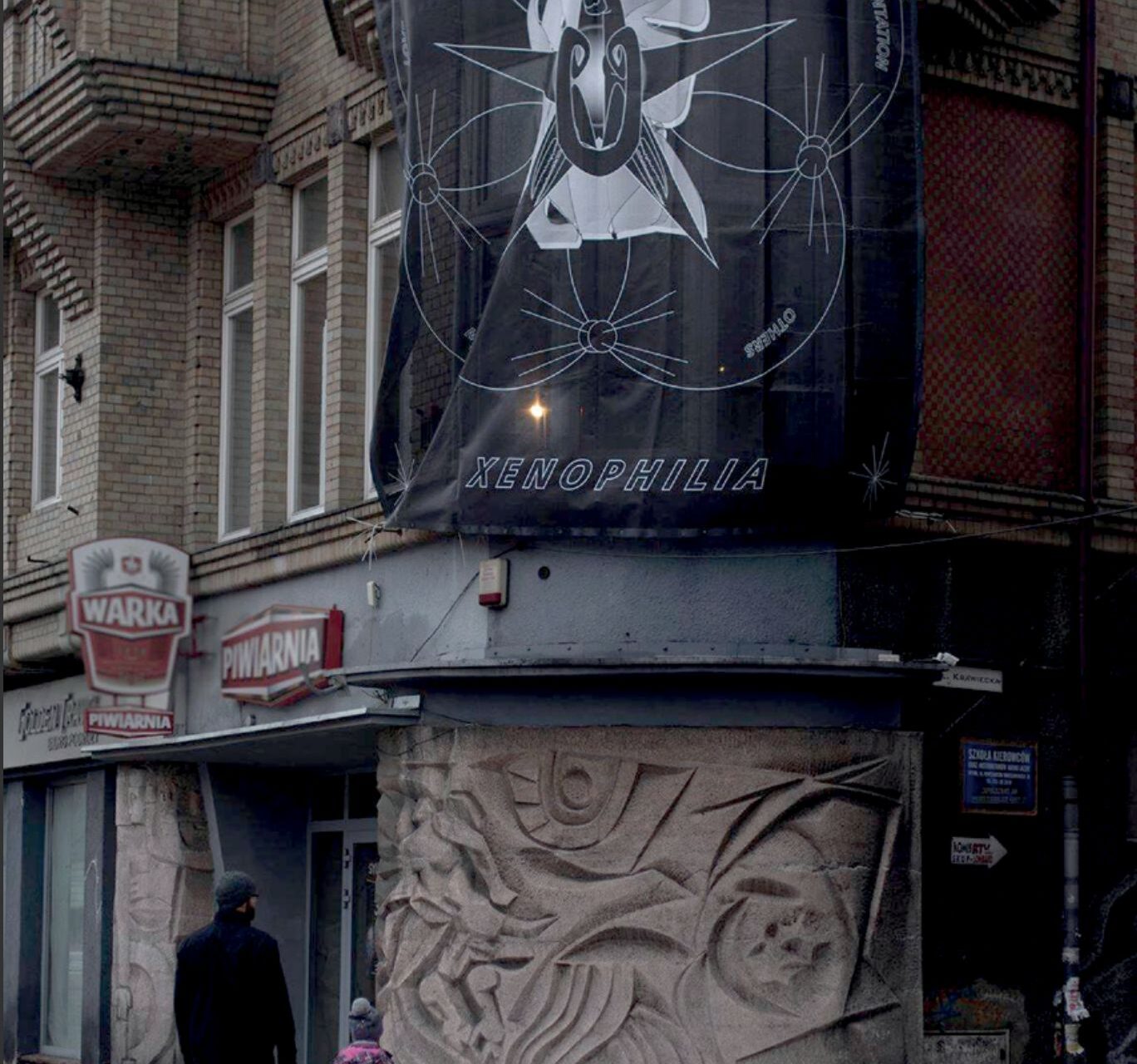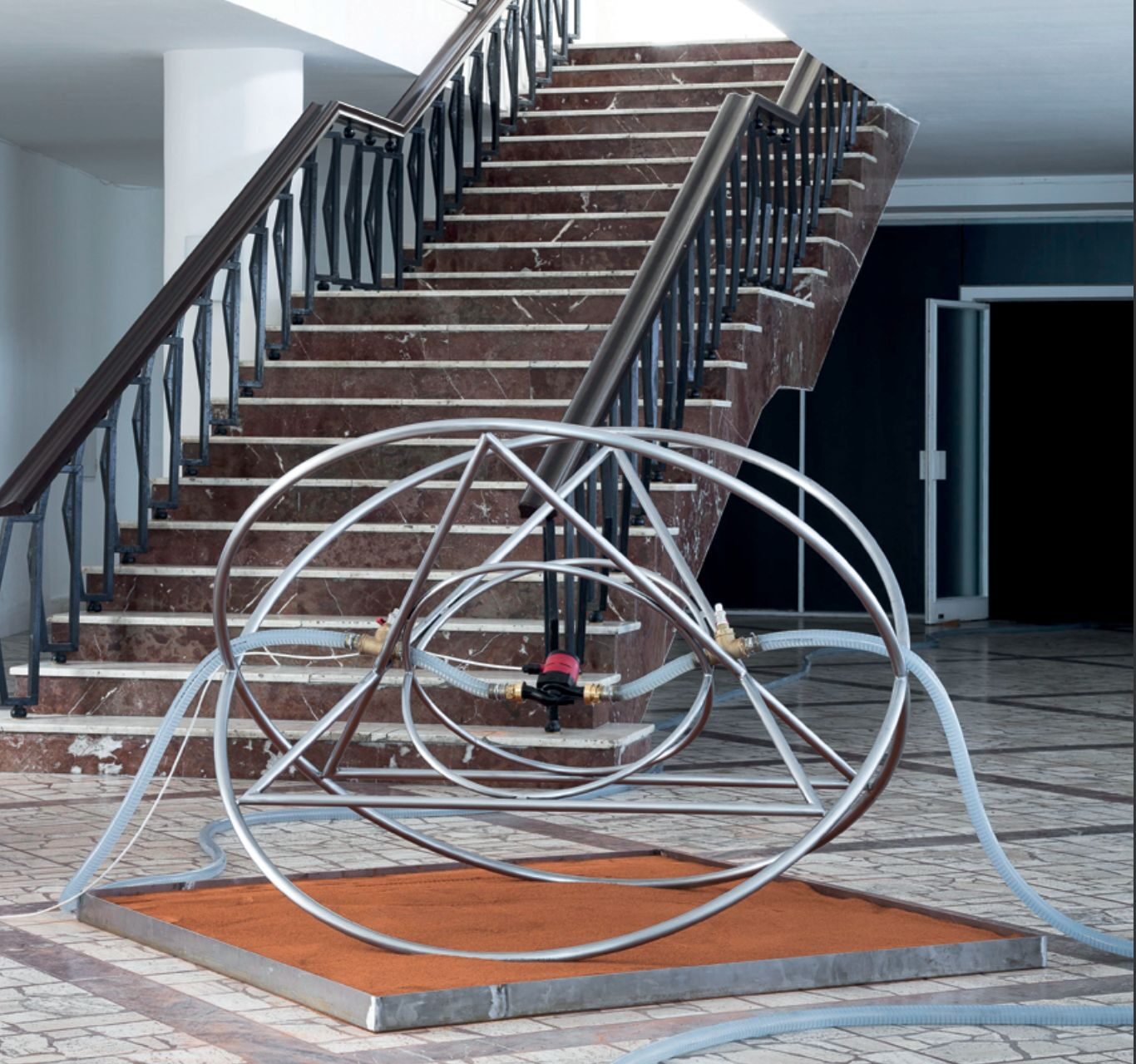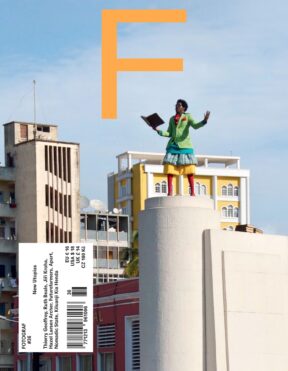Apart
On the Verge of Possible Utopias
Literally overnight, all those meticulously scheduled plans for the next couple of months evaporated from our shared and personal calendars. Days of the week and the distinction between workday and weekend has become of even lesser importance than in the usual precarized art world traffic and every minute brings news of upheavals from all over the world. The word “surreal” has acquired a new meaning in our society. Nothing is going to stay the same—and so it follows that Apart after the virus is not going to be the same as Apart before it.
In his recent text for The Financial Times, “The World After Coronavirus,” written at the time of the global spread of COVID-19 and governmental restrictions on basic human rights, Yuval Noah Harari calls for a necessary reaction to the current situation, which, according to him as well as other critics of the current political system, will affect the whole of our society for years and years to come. It would not be wholly irrelevant to turn here to the 2011 book The Least of All Evils in which Eyal Weizman, the founder of the Forensic Architecture research collective, analyzesthe impact of repressions imposed by the state in times of crisis, as well as their slow, almost imperceptible, gradual dissolution. He illustrates this through the example of Israel and Gaza, where a state of emergency has been in effect since 1948. Critical considerations regarding the policy of “lesser evil” which will be our response to the dilemmas of the upcoming months and years will no doubt be crucial. It seems the time has come for a new utopian thought—a new optimism that will stand in stark contrast to the gradual paring-down of freedoms by way of constant digitized surveillance. So far, all utopias generated by the economic crisis and exhaustion from repetition have in the end fallen prey to an incommensurable clash with the painful pragmatism of “lesser evil”. And as Ursula Le Guin demonstrates at the end of The Dispossessed (1974), ideals eventually survive only in the minds of individuals and small groups, whereas within the state apparatus, no matter how idealistic on paper, they are corroded to the point of utter disintegration. Disintegration as fast, we may say, as that of soap bubbles bursting during our twenty-second long hand washing ritual to the repeated tune of Happy Birthday to Me.
The Apart collective was always an idealistic group whose repeated critiques were aimed directly at topics such as technocratic oligarchy, climate change, identity politics and the need for general collective action in fighting the globally entrenched behemoth of late capitalism. Following this new and universal crisis, however, we can expect their efforts to focus on new solutions, new utopias as radical models to be applied to the eroded system. I cite a text by Boris Ondreička to describe their previous activities. “APART is a meta-participative platform. APART works on a proto-institutional basis—under the principle of shared economies, it slots its polysubjectivity into contexts that are directly related and desired. Rather than building new networks they aim at activating the acceleration of existing intellectual and poetical synapses worthy of attention. They know that nature is already saturated with networks.
APART’s point of departure is media postproduction and distribution that preserve organized volatile proclamations, i.e. performances and interventions. The media they most frequently use are (moving) photography, object and public space, serving them as platforms for display and transmission. The media are not formalistically central here, but rather referential and functional. The result of their production is usually a Gesamtkunstwerk in the same sense as the legendary compilation by Detroitbased Dopplereffekt. Their sociological focus is on current thought (and its direct sources) winding about a prospective vision of the ecology of prolonged humanity. Their thinking is scientifically technological and politically utopian. Their main methods are cumulation, discussion, exchange. APART’s motivation is survival in the world of art (this being perhaps the best ontological example for the entire emerging generation). Collectivity can ensure the prolongation of youth. The sine qua non of survival in the world of art is primary voluntary enthusiasm.
Basal collectivity necessarily springs from instincts. Collectivity then means multiplying body temperatures in order to increase the habitable surface of a space or to cultivate of a microcosmos. Temperature is kinetic energy. Energy is power. Collectivity leads to the (forward) movement of bodies that are fatally oversized for an individual. Collectivity, in this case, is the chiselling of a production based on information and knowledge (subject processing) following a critical dialectic discourse. Collectivity means to provide critical feedback, experience, entertainment, a good sense of solidarity and belonging. Collectivity is the speculative construction of a parallel third home.”
APART Is a Slovak art collective currently comprising the following members – Denis Kozerawski, Ema Hesterová, Andrej Žabkay, Peter Sit and Chiara Rendeková. APART was founded between the late 2011 and early 2012. APART has been active in the area of research, art, projects, exhibitions, curating, publishing and archival work.
JEN KRATOCHVIL is an independent curator of contemporary art working between Prague and Vienna. He mostly focuses on the medium of moving image. As part of the Viennabased platform Significant Other, which he founded together with the architect and curator Laura Amann, he engages in the study of boundaries between art and architecture. Together with Hynek Alt, he is the head of the Studio of Photography and New Media at the Film and TV School of Academy of Performing Arts in Prague.
#36 new utopias
Archive
- #45 hypertension
- #44 empathy
- #43 collecting
- #42 food
- #41 postdigital photography
- #40 earthlings
- #39 delight, pain
- #38 death, when you think about it
- #37 uneven ground
- #36 new utopias
- #35 living with humans
- #34 archaeology of euphoria
- #33 investigation
- #32 Non-work
- #31 Body
- #30 Eye In The Sky
- #29 Contemplation
- #28 Cultura / Natura
- #27 Cars
- #26 Documentary Strategies
- #25 Popular Music
- #24 Seeing Is Believing
- #23 Artificial Worlds
- #22 Image and Text
- #21 On Photography
- #20 Public Art
- #19 Film
- #18 80'
- #17 Amateur Photography
- #16 Photography and Painting
- #15 Prague
- #14 Commerce
- #13 Family
- #12 Reconstruction
- #11 Performance
- #10 Eroticon
- #9 Architecture
- #8 Landscape
- #7 New Staged Photography
- #6 The Recycle Image
- #5 Borders Of Documentary
- #4 Intimacy
- #3 Transforming Of Symbol
- #2 Collective Authorship
- #1 Face



